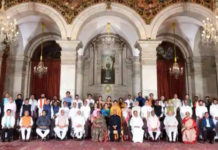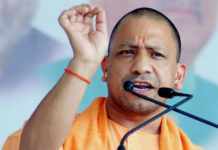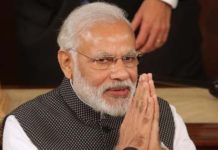Ambedkar’s immense contribution to the vision of social justice and equality underpins the UN’s 2030 Agenda for Sustainable Development, UN Development Programme Administrator Achim Steiner said.
India’s Permanent Representative to the UN Ambassador Syed Akbaruddin said Ambedkar ensured that “India’s Constitution acknowledges the longstanding social injustices of the past and provides for measures of affirmative action to facilitate access to opportunities for disadvantaged sections of Indian society”.
Bhimrao Ambedkar’s “tireless efforts” towards ensuring excluded groups were politically and socially empowered made him a “pioneer” in the world and his vision of equality and social justice echoes the ambitions of the UN’s 2030 development agenda, a top UN official has said.
In his keynote address at a special event organised at the UN headquarters by India’s Permanent Mission to the UN on the occasion of Ambedkar’s 127th Birth Anniversary, UN Development Programme Administrator Achim Steiner said sustainable development was at the core of Ambedkar’s “egalitarian ethos”.
“Ambedkar understood that rising and persistent inequalities pose fundamental challenges to the economic and social well-being of nations and people,” he said yesterday.
“His tireless efforts to ensure that excluded groups were politically and socially empowered, that workers were fairly treated, and that every person had access to education, made him a pioneer in India and in other countries,” Steiner said.
He highlighted Ambedkar’s immense contribution to the vision of social justice and equality, saying this vision underpins the UN’s 2030 Agenda for Sustainable Development.
“Equality of opportunity and of access – critical to Dr Ambedkar’s vision of development for all – are at the heart of the 2030 Agenda for Sustainable Development,” he said.
Steiner said that by placing ‘sabka saath, sabka vikas’ at the centre of its development agenda, the Indian government had demonstrated its “deep commitment” to upholding the ideals of the principal architect of the Indian Constitution.
“Incorporating the ideals of pluralism and inclusion, the Constitution was remarkable in its refusal to discriminate on the grounds of caste, creed, religion or gender,” Steiner said.
India’s Permanent Representative to the UN Ambassador Syed Akbaruddin said as a crusader against all forms of prejudicial treatment of people on the basis of their identity, Ambedkar ensured that “India’s Constitution acknowledges the longstanding social injustices of the past and provides for measures of affirmative action to facilitate access to opportunities for disadvantaged sections of Indian society”.
“This conviction has stood the test of time. It has been the foundation on which the modern India thrives today with its myriad diversities,” Akbaruddin said at the event.
He said that with one-sixth of world’s population and bewildering diversity, India, while on the fast track of economic growth, continues to face multiple challenges, including chronic poverty of significant sections of its population and inequity of income and opportunities.
“This recognition strengthens our collective resolve to address these issues in a holistic manner, consistent with the ideals and institutional legacies of the founding fathers of our Republic like Ambedkar,” he said.
Steiner said that challenges still remained in ensuring equality of opportunity and of access.
“Many of the extremely poor live in remote communities and belong to marginalised groups facing multiple sources of social and economic deprivation. Biases in institutions, legal and economic systems and social norms are systemic drivers of discrimination and entrenched inequality,” he said.
He said it was a situation faced by disadvantaged groups in many countries, urban and rural, such as marginalised indigenous communities, ethnic minorities and persons with disabilities.
“Women and girls are disproportionately represented among those left behind,” he said.
Steiner stressed that automation, artificial intelligence and the innovations of the ‘Fourth Industrial Revolution’ can help countries leapfrog towards more sustainable and equitable development trajectories.
“For this to happen governments, development actors, labour organisations and other stakeholders will need to shape, nurture and guide the innovation process. This will need to include investing in social protection and innovative approaches to improving public services,” he said.
Welcome!Log into your account

 India
India



















